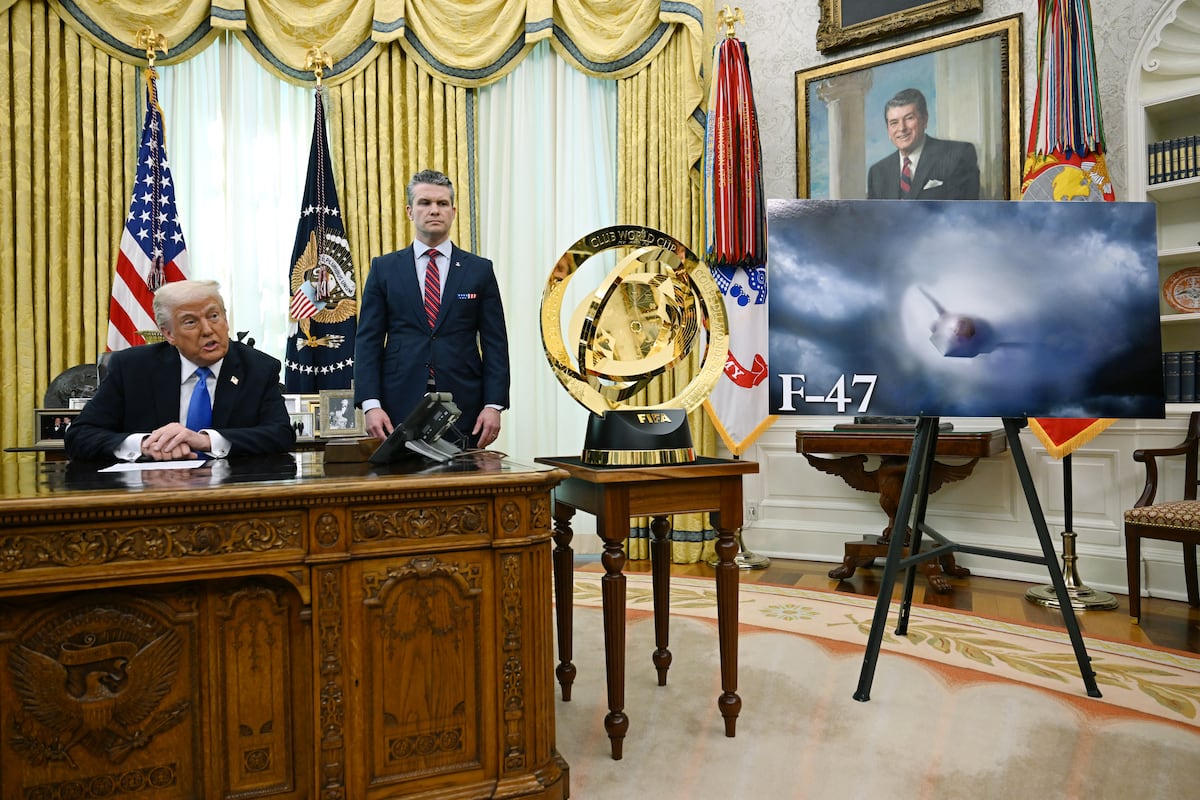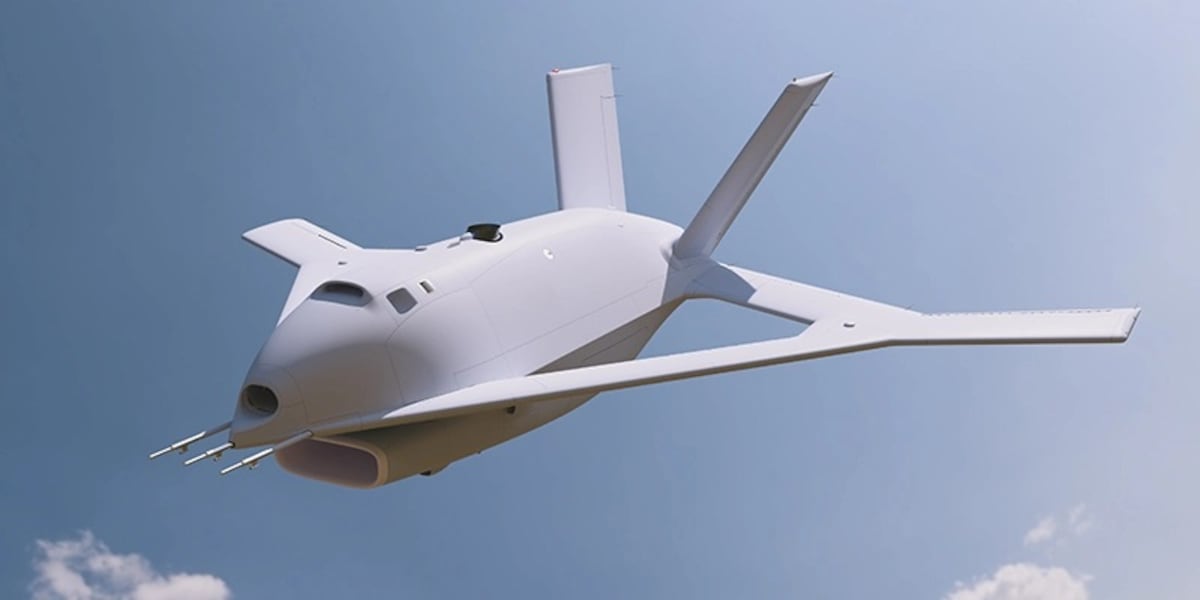Defense industry experts are warning that a potential government stake in major firms such as Lockheed Martin or Boeing could stifle innovation, create conflicts of interest, and lead to more contract award protests, following comments from a top administration official considering the move.
Commerce Secretary Howard Lutnick on Tuesday sparked discussion of whether the Trump administration could broaden the government’s efforts to take slices of vital private firms into the defense world. Speaking with CNBC about the government’s recent acquisition of a stake in Intel, Lutnick indicated that Pentagon leaders could be looking at similar arrangements with other companies.
“There’s a monstrous discussion about defense,” Lutnick said on CNBC. “Lockheed Martin makes 97% of their revenue from the U.S. government. They are, basically, an arm of the U.S. government. … What’s the economics of that? I’m going to leave that to my secretary of Defense and the deputy secretary of Defense. These guys are on it, and they’re thinking about it. There’s a lot of talking that needs to be had about, how do we finance our munitions acquisitions.”
But experts told Defense News Wednesday that such an arrangement would be unprecedented in modern America, and that it’s unclear what problem it would be meant to solve.
“I don’t really understand why they would want to do this,” said Todd Harrison, a senior fellow at the American Enterprise Institute. “This is basically abandoning the free market for national security. This becomes state capitalism, much more in the model of China than in the American tradition.”
Doug Birkey, executive director of the Mitchell Institute for Aerospace Studies, acknowledged that over-budget and behind-schedule weapons systems frustrate many. But it’s unclear how directly involving the government would fix that problem, he said — and it could even make things worse.
The military benefits from competition within the defense industry, which drives innovation and creates incentives for companies to keep programs on time and under cost, Birkey said.
Previous efforts in which the government had a direct hand in defense industrial matters — such as the post-World War I Naval Aircraft Factory in Philadelphia — led to a lack of efficiency and innovation, Birkey said.
Private firms at the time of the Naval Aircraft Facility’s operation also objected to the competition they faced, which they perceived as unfair, from a government-operated rival.
Birkey raised the concern that a partially government-owned defense firm could find itself suffering from the same flaws as the Base Realignment and Closure process. BRAC was meant to identify unneeded and underused bases that could be closed for more efficiency and savings, but often results in a years-long grind mired in politics, he said.
“Traditionally, nationalization has not worked with elements of our economy,” Birkey said. “You want commercial pressures to dominate effective, efficient business decisions. You don’t want industry turning into something like BRAC, where it’s all about politics and it’s not about what’s going to advance warfighting.”
Lockheed Martin did not directly address Lutnick’s remarks when asked for a comment by Defense News.
“As we did in his first term, we are continuing our strong working relationship with President Trump and his administration to strengthen our national defense,” a Lockheed Martin spokesperson said.
Boeing declined to comment.
Intel, Nvidia and national security
On Friday, the Trump administration announced that the federal government was taking a 10% stake in Intel, sparking an intense debate in Washington about whether national security concerns justify government intervention.
President Donald Trump called it a “great deal” for Intel and the United States.
“I will make deals like that for our Country all day long,” he wrote on his Truth social platform.
The chipmaker says the government is purchasing about 433 million primary shares of Intel stock for $20.47 per share, an $8.9 billion investment funded by grants awarded under the CHIPS and Science Act and a Pentagon program that aims to boost semiconductor production.
Small government conservatives have pushed back on this deal, with Senator Rand Paul calling it a “terrible idea.”
“If socialism is government owning the means of production, wouldn’t the government owning Intel be a step toward socialism?” Paul wrote on X.
Progressive Sen. Bernie Sanders has thrown his support behind the idea, telling Politico that “microchip companies make a profit from the generous grants they receive from the federal government, and the taxpayers … have a right to a reasonable return on that investment.”
Meanwhile, California Governor Gavin Newsom has poked fun of the deal, posting on X, “All hail Chairman Trump. With his glorious 10 percent purchase of Intel, the Socialist republic of America enters a bold new era of government-run business.”
Trump is looking to boost American chip production, a focal point of the trade war he’s waging throughout the world. Most of these semiconductor chips today are made in Taiwan and South Korea.
By lessening America’s dependence on chips manufactured overseas, the administration hopes the U.S. will be better positioned to maintain a technological advantage over China.
In an earlier effort to protect the U.S. advantage, the administration halted AI chip sales to China by Nvidia and Advanced Micro Devices. However, the administration has since reversed course with a deal that allows the two companies to sell chips to China as long as they give the U.S. government a 15% commission on their sales there.
The shift has worried former Trump administration national security officials like Matt Pottinger, who says this arrangement effectively monetizes what was supposed to be a national security restriction and gives Chinese rulers the technology they need to beat the United States.
Trump has dismissed the concerns because he says the Nvidia chip in question is “old.” Nvidia’s CEO has argued that restricting sales of American AI chips is bad for U.S. national security because Chinese developers could simply create their own alternatives if they can’t buy American technology.
Distorting the industry?
Defense-industry analyst Harrison said it’s unclear what authority the government would have to take part ownership of these companies, including Intel, and the courts may have the final say on its legality.
In the case of publicly-traded companies like Lockheed, he said, the government may buy shares of stock. But for privately held firms such as SpaceX, Harrison said it would require negotiations with the current owners, who may object.
Partial government ownership of firms could have a “distortive” effect on the defense industry, Harrison warned.
“What does the government do with its stake in the company?” Harrison said. “Does it get a seat on the board? Who fills that seat? Does it try to exert pressure or control on how companies are managed? Does it try to oust the CEOs or other C suite officers in these companies?”
That situation could also create conflicts of interest that may result in more protests of contract awards, he said. It could also lead to “pretty ridiculous” and messy situations where a top service official who makes a decision on a major acquisition is also serving on the board of the winning company, Harrison said.
“If the government is a major shareholder in a company, and that company is competing for work and seeking regulatory approval from the same government, that would seem to create a conflict of interest that would disadvantage other companies that aren’t partially owned by the government,” Harrison said.
Investors would also have less reason to put money into new, startup firms trying to break into the defense market, he said, if the government was seen as favoring companies it partially owned.
“Why would you want to invest in this market if it’s becoming a government-controlled market?” Harrison said.
The long-term result, he said, could be that innovation is stifled, as competitors that could otherwise shake up the market are frozen out.
And it could lead to the U.S. defense industry being more like that of China, where the government owns the major defense corporations and innovation lags behind, Harrison said.
In China, “you see consolidation into a handful of firms,” Harrison said. “You see a lot of government-directed development rather than organic innovation. And more broadly, you see that China, when it comes to military technology, is often a second mover. They see what is working for the U.S., and then they attempt to copy it.”
Adopting a similar structure would “absolutely” stifle U.S. innovation, he said.
“You can see that [effect] in things like the government-run depots,” Harrison said. “They’re not very innovative, they’re not very efficient. Because they don’t need to be.”
Stephen Losey is the air warfare reporter for Defense News. He previously covered leadership and personnel issues at Air Force Times, and the Pentagon, special operations and air warfare at Military.com. He has traveled to the Middle East to cover U.S. Air Force operations.
Read the full article here








Leave a Reply